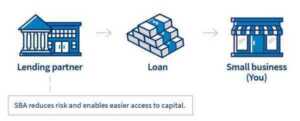Nothing is more annoying than grant credit and having to be chasing or your clients for payment, or in the worst case consider your capital lost.
Giving credit is usually one of the most effective strategies to grow your business.
Having financing options will allow you to compete, however it is important to handle basic techniques to carry out an effective collection management that allows you to recover your money promptly and affecting the relationship with your client as little as possible.
These are some practical tips that will help you make payment easier by exposing your working capital:
- Do not give credit indiscriminately. From the moment you grant credit then there is risk. But this can be minimized from the beginning and for this the first step is to be aware that you cannot openly and indiscriminately give credit to every client who requests it. In fact, one of the big mistakes that could end your business is this practice. Define from the beginning a credit policy That it allows you to filter and determine who you can grant financing to and who you cannot, is extremely important. Don’t fall into the trap of thinking that by giving credit to everyone you are automatically selling more. A sale on credit is only good if the customer completes the payment.
- Take measurements at the beginning and not at the end. The collection policies they should be part of the process from the beginning and not an emergent measure at the end. If you establish the appropriate collection mechanisms from the beginning, the possibilities of delinquent clients, collection expenses and losses are reduced. The fundamental principle of credit is: If things do not go well, in any case who should lose is the delinquent customer and not the company.
- Don’t give credit informally. Let’s accept it as it is. A credit is allowing the customer to buy your product, with your money! And this can work well as long as you are formal to grant it. Remember that the money at stake is yours. For this, it is essential that you have complete information about your client or at least the essential information to be able to locate him, as well as a document that clearly specifies the loan conditions: term, interest, payment dates and late charges. Some plittle entrepreneurs they evade formality for fear that the customer will refuse to buy. However, as serious as granting a loan should be the acceptance of it.
- Make sure to authorize every credit to be granted as much as possible. The general management or the business owner if is one small business It should be the last word when it comes to authorizing a loan. You must be sure that the person to whom you are giving financing has been investigated, has references and if possible, use a credit reference consultation system that provides information related to your client. These systems exist in most cities and the costs per consultation are usually affordable. Finally, it authorizes only those credits that have all the information to locate the client and that are within the established conditions and policies. All this should bear your signature and for no reason allow employees to authorize at their discretion.
- If necessary, request guarantees. When the amounts of the credits exceed certain limits or when the risk is higher, an alternative is to request guarantees. Known collaterals are surety, pledges, or mortgages. The guarantees of course remain in your possession temporarily until the credit is settled or they are resources to be able to legally claim the payments when the circumstance warrants it.
- Establish controls and order. A effective collection management it is based on the order and organization of the information. You must have a database (computer or manual) that allows you to archive the data of your client and their credit to know exactly when to pay and how much. A good practice that helps reduce arrears is to make reminder calls, which are very courteous calls that only remind your customer about their next payment. This in addition to reminding him is a way of making him see that you are aware of his account.
Wait for the second part of this article where you will find more tips to collect effectively and get your money back. Meanwhile, I share other topics of business Administration:
You can bookmark this page

























